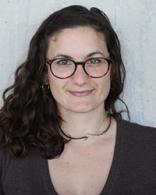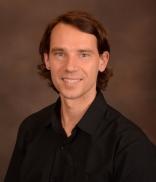Our Scholars
Morgan DeSantis, Ph.D.
Cell division, cell migration, and transport of cellular cargo are diverse, fundamental processes that require microtubules and motor proteins. Microtubule-based motor proteins couple ATP hydrolysis to force-generating movement along microtubules. Dynein is the primary minus-end directed microtubule motor in animal cells. It has essential, yet distinct roles throughout the cell cycle. These roles include cargo transport during interphase, spindle alignment and focusing during mitosis, and cell migration in neurons. Underscoring the importance of dynein to human biology, mutation or misregulation of dynein leads to a number of devastating diseases.
My lab is interested in understanding how dynein functions and how it is regulated during multiple points in the cell cycle. We use a number of techniques including pure protein biochemistry, single molecule and live-cell fluorescence microscopy, proteomics, and cryo-electron microscopy.
Roland Kersten, Ph.D.
Stephanie Moon, Ph.D.
Teresa O'Meara, Ph.D.




